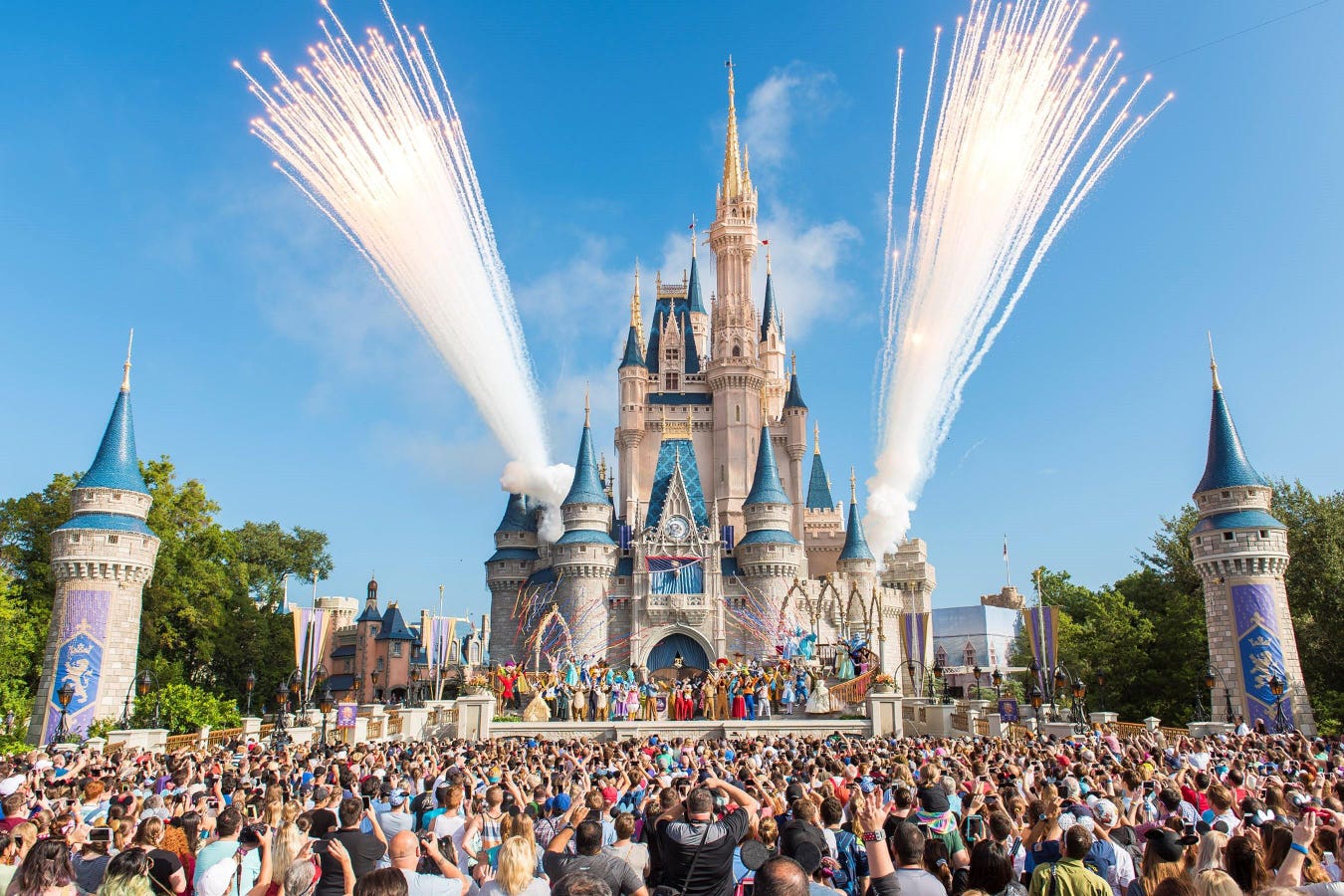LAKE BUENA VISTA, Fla. – Walt Disney World Resort celebrated its 45th anniversary on October 1, 2016. [+] Lake Buena Vista, Florida. (Photo by Jacqueline Nel/Disneyland Resort via Getty Images)
Getty Images
Disney has come under fire from a coalition representing guests with disabilities who plan to visit its Disneyland and Disney World theme parks in Anaheim, California, and Orlando, Florida.
The entertainment giant announced changes to its long-standing Disability Access Services policy, which allows guests with disabilities who have difficulty waiting in long lines at attractions to reserve an attraction in advance and wait in a separate location until their turn comes. Previously, Disability Access Services passes were available to individuals with any disability, including those with mobility issues. But starting May 20 at Disney World and June 18 at Disneyland, the policy will only be available to visitors with developmental disabilities, such as autism spectrum disorder.
Disney appears to have taken this measure in response to a perceived increase in disability faking, i.e. guests without disabilities who fake an illness to use the service to bypass lines at the parks. Rumors of such fraudulent activity have been circulating among guests discussing the theme parks online for the past few years. Additionally, raw data shows that usage of the DAS program has skyrocketed since 2019 and is now the most widely requested service across Disney parks.
This significant increase is unlikely to be solely attributable to a new desire by consumers with disabilities to visit the parks, and therefore other factors are clearly at play.Similarly, one could speculate that conditions such as ASD are retained within the regulations because they represent areas of greatest need, and affected people often experience genuine anxiety and distress when queuing, which may impact on other guests.
Nevertheless, a coalition of about 140 people outraged by the policy change wrote letters to Disney executives, including CEO Bob Iger, accusing the company of discriminating against people living with illnesses including cancer, narcolepsy, Parkinson’s disease, PTSD, multiple sclerosis and cerebral palsy.
The letter reads:
“Punishing disabled people for able-bodied people gaming the system is not the solution,” he said, adding: “These changes do not adequately address abuse. People who game the system will still lie.”
Shannon McEvoy, a Florida-based travel agent who has booked hundreds of Disney World trips for clients with disabilities over the past few years, told the San Luis Obispo Tribune that she has certainly seen the unfortunate practice of faking disabilities over the years.
“I’ve had able-bodied people asking how they can get DAS service passes or guest passes when they have no specific disability,” McEvoy said. “It’s sad that there are people out there trying to take advantage of a system that I care about so dearly.”
However, a Disney spokesperson confirmed that the company remains committed to ensuring that park-goers with disabilities have the best possible experience.
A company statement read:
“Disney is committed to providing amazing experiences for all of our guests, including those with disabilities, which is why we’re committed to offering a wide range of innovative support services designed to help guests with disabilities have a great time when visiting our theme parks.”
Disney also said it will continue to provide detailed accessibility information for its parks on its website and plans to hire more staff with enhanced training to guide park-goers about accessibility measures. People who qualify for a DAS pass will now not have to reapply for 120 days instead of the previous 60 days.
The Rider Switch service will also continue, allowing one adult to wait with a non-rider while the rest of the group enjoys the ride. When that guest returns, they will swap places with the waiting adult, who will then be able to ride the ride again without having to wait in line.
Unfortunately, the phenomenon of disability faking is all too real, and while it’s understandable that Disney doesn’t want to be fooled, certain aspects of this policy shift will be unpopular with the disability community. First, it seems like a move aimed at non-disabled people that ignores the needs of the genuinely disabled customers who have benefited from DAS to date.
Perhaps even more damaging is the attempt to impose categorization and blanket rulemaking on issues as deeply personal and sensitive as the access needs of people with disabilities. As the new policies come into effect to mark the start of the summer season, perhaps some of the web forums that denounced the scammers will share sad stories of dream vacations marred by the withdrawal of previous rights that, for at least some families, helped make those dreams a reality.

